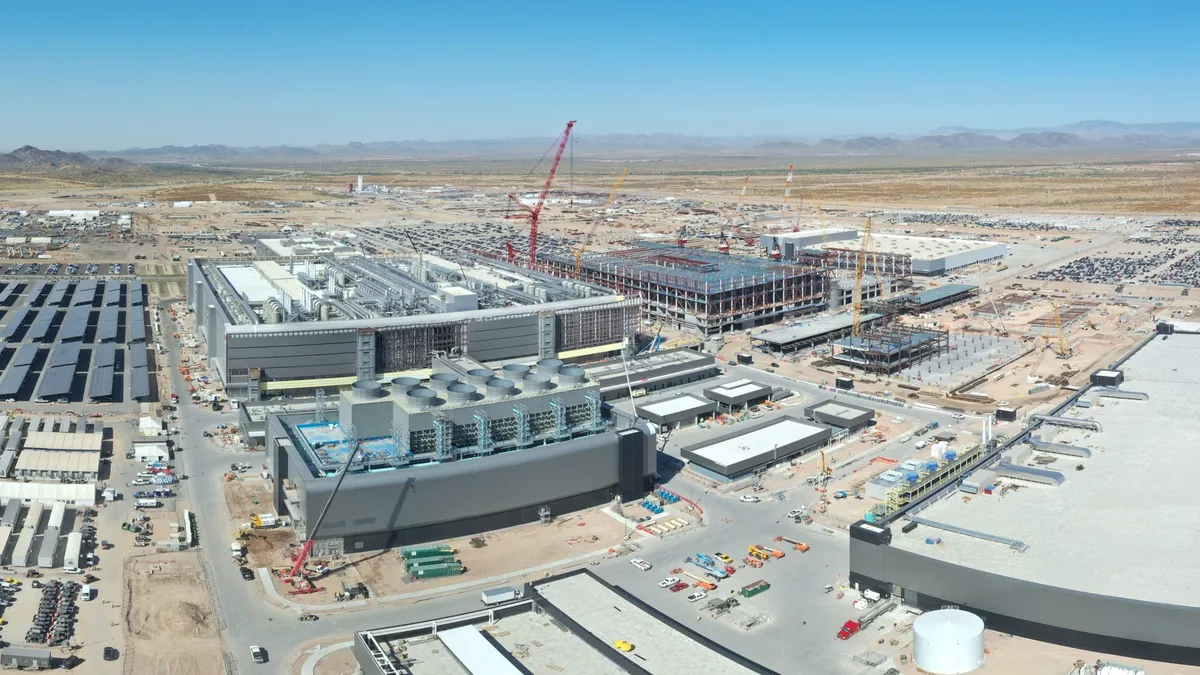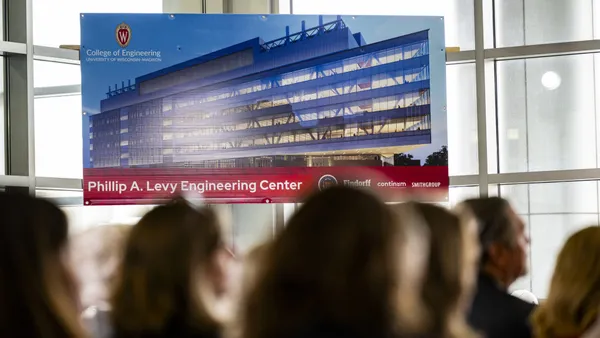UPDATE: Jan. 19, 2023: Taiwan Semiconductor Manufacturing Co. announced on Thursday a delay in the construction of a second plant within its $40 billion Arizona project.
Despite TSMC’s recent agreement with the Arizona Building and Construction Trades Council, the semiconductor giant is still dealing with a shortage of skilled workers as well as issues with securing U.S. government funding, Chairman Mark Liu said during an earnings call.
Due to these reasons, Liu said yesterday that TSMC will push back the timeline for production at its second factory from 2026 to either 2027 or 2028, according to the company. The firm had already postponed production at the site’s initial factory from 2024 to 2025.
Original story follows below.
Dive Brief:
- Taiwan Semiconductor Manufacturing Co., a Taiwanese semiconductor manufacturing company working on a $40 billion advanced manufacturing project in Phoenix, reached an agreement last month with the Arizona Building and Construction Trades Council regarding labor, according to a joint statement shared with Construction Dive.
- The semiconductor giant had pushed back the opening of its Arizona chip factory until 2025 due to an “insufficient amount of skilled workers,” according to Mark Liu, TSMC chairman. That sparked an outcry from the construction union in Arizona, which suggested the move was a ploy by TSMC to save money by hiring foreign workers, according to Aaron Butler, head of the Arizona Building and Construction Trades Council.
- While manufacturing projects continue to break ground across the United States, concerns around whether there are enough workers to build them have persisted. Construction job openings jumped 10.3% in the latest Bureau of Labor Statistics report, as the industry has failed to draw in new workers to train.
Dive Insight:
Labor shortages continue to pose a threat to the manufacturing boom, despite billions in both public and private investments pouring into onshoring construction.
For advanced manufacturing projects, this challenge is further aggravated, since many of these projects demand an even more advanced level of expertise for safe completion. As the largest single foreign direct investment in Arizona’s history, TSMC will feature the most advanced semiconductor process technology in the U.S., according to the joint statement.
However, the deal in Arizona between TSMC and the Arizona Building and Construction Trades Council shows signs of progress.
“Arizona Building and Construction Trades Council union members have the critical skills necessary to help us complete our two advanced-chipmaking fabs,” said Brian Harrison, TSMC Arizona president. “We look forward to embarking together on a new chapter of partnership and collaboration.”
The deal consists of four main parts:
- Arizona Building and Construction Trades Council will recruit a sufficient number of skilled workers to fulfill manpower requirements of TSMC Arizona’s contractors for the project. TSMC will partner with the union on the development of union workforce training programs and curricula. The goal will be to build a construction workforce that can support TSMC in the near and long term.
- TSMC will maintain transparency with the Arizona Building and Construction Trades Council with regards to safety assessments, audits, incident records and improvement plans.
- TSMC will focus on hiring workers locally in the United States, though circumstances may require TSMC or its vendors to employ foreign workers with specialized experience.
- Meetings between TSMC and the Arizona Building and Construction Trades Council will be held quarterly, one of which will be an annual forecast meeting to project future workforce requirements.
“[The] agreement is a win for Arizona’s workers and the construction timeline of TSMC Arizona,” said Butler. “Arizona Building and Construction Trades Council and TSMC Arizona have shown that when we come together to focus on our workers and developing the skills of the future, our state has much to gain.”














